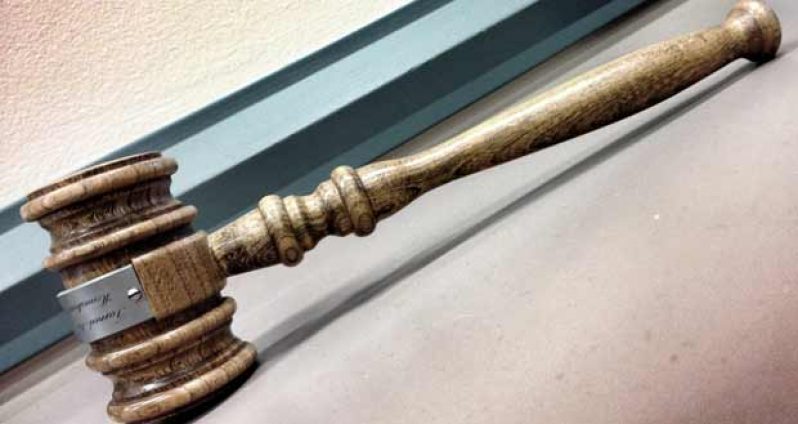Businessman Budhai was convicted of the offence of obstructing the respondent Fraser in the execution of his duty when “the grounds of suspicion” as required by law were not stated by Justice of the Peace.
On appeal, the Full Court constituted by Justice Linden Gordon, and Justice Akbar Khan, allowed the appeal because there was no ground of suspicion.
The appellant Budhai was convicted under Section 99 of the Spirits Ordinance. Cap. 319 of the offence of obstructing the respondent Fraser, in the execution of his duty under the Intoxicating Liquor Licensing Ordinance, Cap. 316.
At the time of the obstruction the respondent was seeking to execute a search warrant obtained under Section 9 of the Summary Jurisdiction (Procedure) Ordinance Cap. 15. No grounds of suspicion were stated by the Justice of the Peace who issued the warrant.
The Full Court held: the conviction was bad because the search warrant was not issued under Section 104 (i) of the Spirits Ordinance ,Cap. 319, and because no grounds of suspicion were stated by the Justice of Peace who issued it , Boston v- Badgobin, 1921 LRBG. 41, and Bacchus v- Bissessar, 1960 L.R.B.G. 409, distinguished.
Appeal allowed
Bhairo Prasad appeared for the appellant, while E. A. Romao Senior Crown Counsel, represented the respondent.
JUDGMENT OF THE COURT
“This is an appeal by the appellants against the conviction on the 20th March, 1961 under Section 99 of the Spirits Ordinance Cap. 319, for obstructing the respondent, in the execution of his duty under the Intoxicating Liquor Licensing Ordinance Cap. 316.
“The facts clearly indicate that the obstruction took place when the respondent sought to execute a search warrant obtained under Section 9 of the Summary Jurisdiction (Procedure) Ordinance .Cap. 15. Counsel for the appellant has argued before this court that the search warrant under which the respondent purported to act should have been in accordance with Section 104 (1) of the Spirits Ordinance, Cap. 319; further that the search warrant under which the respondents acted could not have been referring to Section 104 (1) because it was lacking in a medical particular, viz:- that no grounds of suspicion were stated to the justice of the peace who issued the search warrant; on which the case before the Court is founded is therefore bad and in the result there could be no obstruction as contemplated by section 99 of the Spirits Ordinance, Cap. 319.”
“It was contended by counsel for the respondent that because all offences under the excise laws were summary offences it was in order for the respondent to have acted on a search warrant which was valid under Section. 9 of the Summary jurisdiction (Procedure) Ordinance, Cap. 15. He cited the case of Boston v. Balgobin, 1921, LRBG 41, in support of his argument.”
“In his reasons for the decision the learned trial magistrate relied on the decision of the Full Court of the Supreme Court in Bacchus v- Bissessar, 1960 LRBG. 409.”
“Both these cases are however distinguishable from the present case, in that each of the cases cited the ratio decidendi turned on the point that material evidence found on the execution of a warrant obtained in accordance with Section. 9 of the Summary Jurisdiction (Procedure) Ordinance Cap. 15, not only disclosed offences under the Spirits Ordinance Cap. 319, but provided all the elements which went to prove those offences.
“In those cases the court rejected the argument that the evidence which came to light on the execution of the search warrants should not be admitted in evidence.”
“In the instant case, although the obstruction alleged by the respondent occurred during the execution of a search warrant obtained under Section. 9 of the Summary Jurisdiction (Procedure) Ordinance Cap. 15, the appellant was not charged with an offence under the Summary Jurisdiction (Offences) (Ordinance), Cap. 14, for which Section 28 (b) makes ample provision but with an offence under Section 99 of the Spirits Ordinance Cap. 319 which provides for a more severe penalty.” The appeal was allowed.
(By George Barclay)



.jpg)








